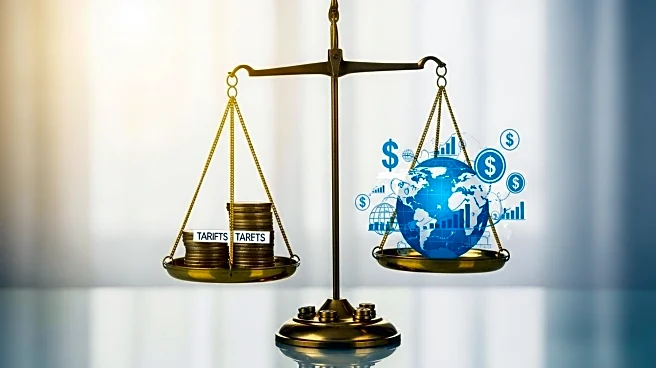What's Happening?
The US Supreme Court is set to decide on the legality of President Trump's 2025 tariffs, which have sparked constitutional debate over trade policy. The tariffs, imposed under the International Emergency Economic Powers Act, face scrutiny for potentially exceeding presidential authority. A ruling against the administration could invalidate tariffs on China, Canada, and Mexico, while preserving those under Section 232 national security provisions. This legal uncertainty has disrupted trade negotiations and affected global markets, prompting investors to adjust strategies in anticipation of policy shifts.
Why It's Important?
The Supreme Court's decision will impact global trade and investment strategies, influencing economic relations and market dynamics. A ruling against the tariffs could reaffirm congressional control over trade policy, affecting international agreements and economic stability. Conversely, a decision in favor of executive authority may normalize high tariffs as a foreign policy tool, with implications for global trade flows. The outcome will shape investor strategies, with sectors like consumer cyclical industries facing elevated costs and reduced demand due to retaliatory measures. The decision will redefine the balance of power between Congress and the executive branch.
Beyond the Headlines
The legal debate over Trump's tariffs highlights broader issues of executive power and trade policy. The case underscores the complexities of using emergency powers for economic leverage, with potential long-term impacts on US governance and international relations. The decision will influence future administrations' approach to trade policy and executive authority, setting precedents for economic decision-making. The implications extend beyond immediate market effects, affecting the strategic positioning of industries and investors in a globalized economy.









